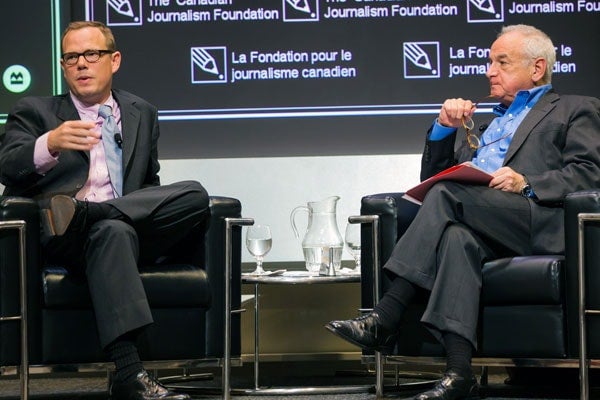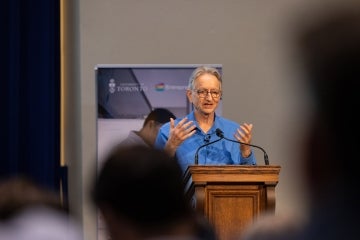
Gawker, Rob Ford, and the rise of new media
Published: November 6, 2013
Toronto Mayor Rob Ford’s stunning admission that he smoked crack cocaine is making headlines around the world.
Along with the news value of the mayor of Canada’s largest city admitting to using illegal drugs comes a lesson in the evolving values and conflicts of new and traditional media, says University of Toronto's Jeffrey Dvorkin.
Most people now get their news from screens, especially blogs such as Gawker.com, which feature a mix of hard news and celebrity gossip delivered with the irreverence of a class clown. The popular New York-based website garnered international attention earlier this year when it sponsored a controversial ‘Crackstarter’ fundraising campaign. Gawker’s goal was to raise money from the public to purchase a video depicting Ford smoking a substance believed to be crack.
A few weeks ago, Gawker editor-in-chief John Cook appeared on stage to debate “Gawking, Gossip and Crowdfunding” with Dvorkin, a lecturer and program director of the University of Toronto Scarborough’s journalism program. The debate, hosted by the Canadian Journalism Foundation, took place in front of a capacity audience in downtown Toronto.
The discussion raised several important issues about news gathering, especially in this 21st century age of newsroom cutbacks, changing media habits and technological shifts.
Existence of the video was first reported in May, when reporters from Gawker and the Toronto Star said they had seen a clip of the video with Ford smoking from the pipe. Gawker tried to buy the video but was unsuccessful. Both Gawker and The Toronto Star maintained intense media coverage on Ford and his alleged drugs and alcohol abuse, despite the politician’s public claims to the contrary.
During the spirited debate, Dvorkin expressed concern that Gawker might be shirking its responsibility to sufficiently cover all sides of certain stories.
“It’s not exactly what you’re known for,” said Dvorkin, referring to extensive investigative pieces normally associated with established publications such as the New York Times and The New Yorker.
But Cook disagreed, citing several extensively-researched stories published on Gawker.
“We do many, many serious investigative pieces, including series that looked extensively at the Gaza War, Mitt Romney’s involvement in Bain Capital, and U.S. unemployment rates and their individual impact throughout America,” said Cook.
Cook also cited Gawker’s famous investigation titled Unmasking a Troll, which exposed a man previously known only by his online persona ViolentAcrez. The series received widespread coverage across the globe, transcending media audiences from the Telegraph, Atlantic, NPR, Huffington Post and Slate, among others.
“The best thing that a journalist can do is evoke one response from a reader…and I think that’s what Gawker does,” said Cook.
And it appears that Ford can give traditional media such as the Toronto Star and new media like Gawker plenty to work with, said Dvorkin.
Dominic Ali and Michael Kennedy are writers with University Relations at the University of Toronto.



